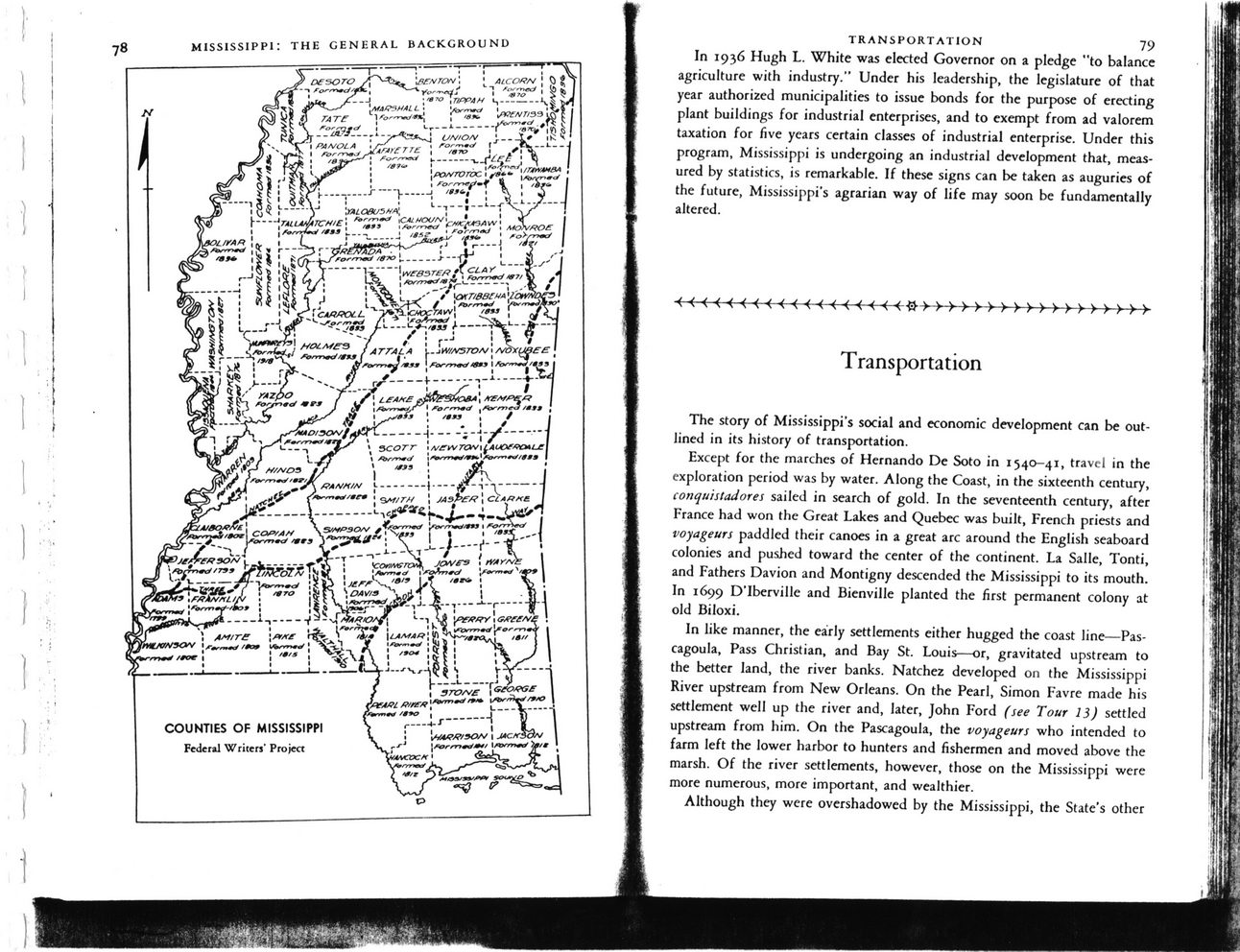This text was obtained via automated optical character recognition.
It has not been edited and may therefore contain several errors.
78 Mississippi : THE GENERAL BACKGROUND TRANSPORTATION 79 In 1936 Hugh L. White was elected Governor on a pledge "to balance agriculture with industry." Under his leadership, the legislature of that year authorized municipalities to issue bonds for the purpose of erecting plant buildings for industrial enterprises, and to exempt from ad valorem taxation for five years certain classes of industrial enterprise. Under this program, Mississippi is undergoing an industrial development that, measured by statistics, is remarkable. If these signs can be taken as auguries of the future, Mississippi’s agrarian way of life may soon be fundamentally altered. •<<■<<<<•<■<<<<<<--<-<•<■< <■&+ >-y> >>>>>>>>>>>>>■> Transportation The story of Mississippi's social and economic development can be outlined in its history of transportation. Except for the marches of Hernando De Soto in 1540-41, travel in the exploration period was by water. Along the Coast, in the sixteenth century, conquistadores sailed in search of gold. In the seventeenth century, after France had won the Great Lakes and Quebec was built, French priests and voyageurs paddled their canoes in a great arc around the English seaboard colonies and pushed toward the center of the continent. La Salle, Tonti, and Fathers Davion and Montigny descended the Mississippi to its mouth. In 1699 D’lberville and Bienville planted the first permanent colony at old Biloxi. In like manner, the early settlements either hugged the coast line—Pascagoula, Pass Christian, and Bay St. Louis—or, gravitated upstream to the better land, the river banks. Natchez developed on the Mississippi River upstream from New Orleans. On the Pearl, Simon Favre made his settlement well up the river and, later, John Ford (see Tour 13) settled upstream from him. On the Pascagoula, the voyageurs who intended to farm left the lower harbor to hunters and fishermen and moved above the marsh. Of the river settlements, however, those on the Mississippi were more numerous, more important, and wealthier. Although they were overshadowed by the Mississippi, the State’s other

Hancock County Early WPA-Guide-to-Mississippi-(051)